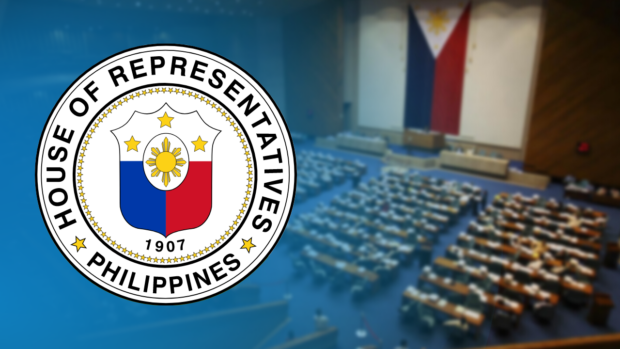Solon on RBH 7 deliberation: Constituent assembly or committee hearing?
MANILA, Philippines — ACT Teachers party-list Rep. France Castro has asked House leaders whether the committee of the whole tasked to deliberate Resolution of Both Houses (RBH) No. 7 is already acting as a constituent assembly.
Castro posed the question on Monday, during the start of committee hearings on proposed economic amendments to the 1987 Constitution’s economic provisions — noting that House rules dictate that each resolution or bill should only contain one topic.
According to the lawmaker, this is contrary to what RBH No. 7 presents as there are three central topics in the resolution — Section 11 of Article XII (National Patrimony and Economy), Section 4 of Article XIV (Education, Science, and Technology, Arts, Culture, and Sports), and Section 11 of Article XVI (General Provisions).
“I am confused Mr. Chair as to what we are doing now, is this like a constituent assembly already? Or just a simple committee hearing as (a) committee of the whole? Because Mr. Chair, RBH No. 7 tackles different topics,” Castro asked Majority Leader Manuel Jose Dalipe who presided over the hearing.
“So if we are going to have a committee hearing on a certain bill or resolution, isn’t it stated in our rules and in the Constitution, Article VI Section 26, Paragraph 1 of the 1987 Constitution, every bill passed by the Congress shall embrace only one subject which shall be expressed in title thereof. But our RBH No. 7, aside from the economic provisions we stated, we see that there are many topics,” she added.
Article continues after this advertisementA constituent assembly is one of the three ways allowed to amend the 1987 Constitution, aside from a constitutional convention and a People’s Initiative. According to Article XVII of the Constitution, “any amendment to, or revision of, this Constitution may be proposed by The Congress, upon a vote of three-fourths of all its Members.”
Article continues after this advertisementIn response, Mandaluyong Rep. Neptali Gonzales II, who was designated as the floor leader, said that lawmakers can categorize the committee of the whole hearings as whatever, but proposing constitutional amendments is well within the House’s powers.
“Mr. Speaker you can either characterize it as a constituent assembly or a legislative body, in both cases we are exercise our constituent power — meaning the authority and the right of this Congress to amend or propose revisions to the Constitution as provided for and as guaranteed by the Constitution,” Gonzales said.
“We also have our own rules, that allows us to make proposal by amendment or revision to the Constitution, as an ordinary resolution, a House concurrent resolution and as mandated by our rules because we are considering it as a resolution, then like an ordinary bill, it should pass three readings — meaning first, second, and third reading. The only difference in terms of voting the proposed amendments to be approved must be approved by at least three-fourths of all the members of the House,” he added.
With her question left unanswered, Castro asked why the House leadership cannot just be frank about convening a constituent assembly — to which Gonzales responded by saying that the ACT party-list lawmaker should have objected, countered, or filed a motion for reconsideration regarding the Majority’s move to convene a committee of the whole last Tuesday.
The House earlier started deliberating RBH No. 7, which seeks to amend the 1987 Constitution’s allegedly restrictive economic provisions.
In his speech at the opening of the hearing, House Speaker Ferdinand Martin Romualdez has maintained that the mission of the House is clear — to push for economic amendments only and improve the lives of Filipinos.
